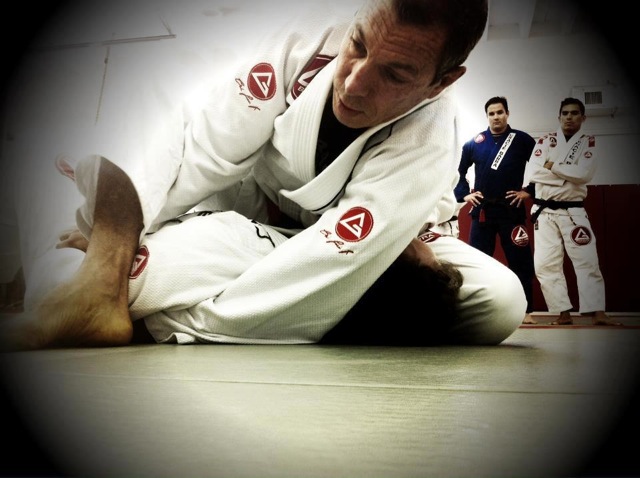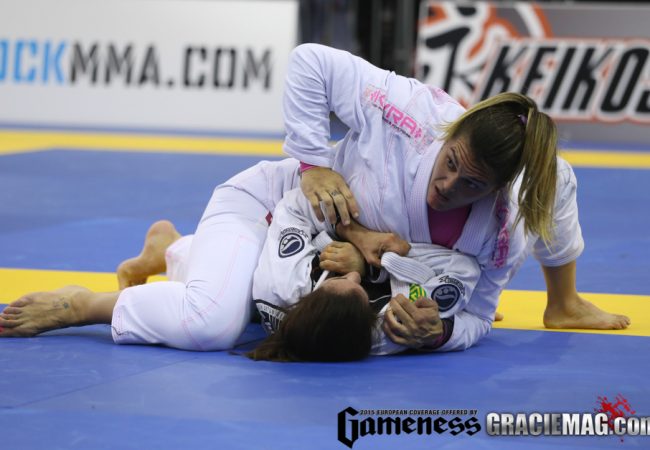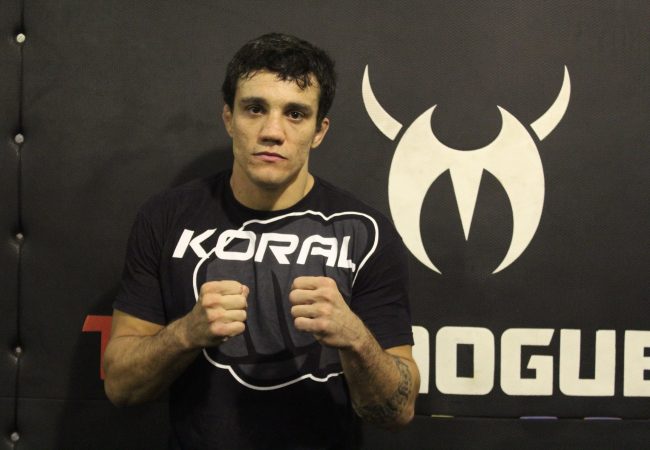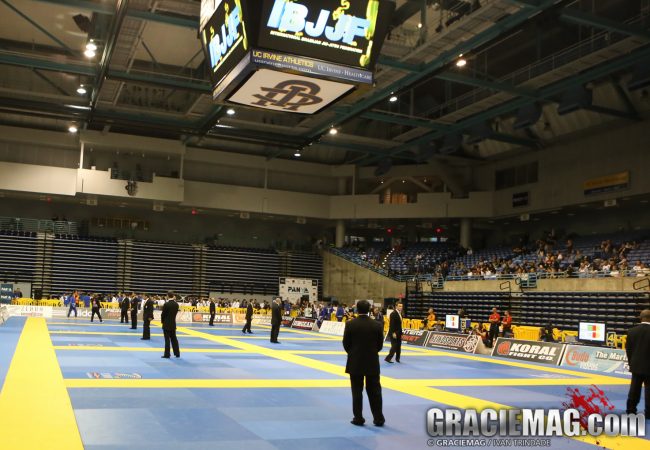Before taking a dive in Laguna Beach, California, master Carlos Gracie Jr. steadily climbs the 150 steps of a seemingly endless stairway. He repeats this three times, sometimes faster. He keeps the same consistency, health and effort in running the IBJJF, which holds the BJJ Worlds, created by him in 1996 in Rio, and starting this Thursday in Long Beach. After riding some waves with the master, calves a-burning, the reporter chatted about the history of the BJJ Worlds up until now.
GRACIEMAG: So, 18 years of World BJJ Championships. What do you make of it so far?
CARLOS GRACIE JR: The BJJ Worlds was born from a seed we planted years before, really. We were facing this massive challenge of trying to organize the BJJ tournaments in a consistent way, as up until 1994 there was only the Rio de Janeiro State Championship, organized by master Francisco Mansur along with uncle Helio. But the tournament took place every other year, and was even skipped altogether some years. So I decided to organize the first Brazilian BJJ Championship, which met a lot of criticism as people said it was a local sport and doubted there would be anyone coming from other states. But it worked out great, with athletes from Manaus and many other cities, and so the idea came true. I always liked that thing I saw in other sports, where athletes traveled with their teams to compete, and so I held the Pan-American in Irvine, California, in 1995. Back in my day we never traveled farther than our neighbor state of Minas Gerais to fight. But the time had come for Jiu-Jitsu to have its own international tournament.
And how did the Pan go?
There were two American gyms with athletes willing to take part, that of the Machados and that of Joe Moreira. I brought 120 athletes from Brazil, and BR sponsored the trips. And then things happened, and the Pan-American toured around California, Florida and Hawaii. Then I realized there was the need for a worldwide championship. Instead of waiting for the sport to catch on abroad, the tournament itself would help the sport grow and spread all over the globe and leave the Stone Age. We’ve come a long way, but there’s still a lot of ground to cover.
What’s the lesson to take from the success of the BJJ Worlds?
That you have to fight for your dream, because no one is gonna do it for you. The BJJ Worlds wasn’t born as a competition between countries as in soccer, but rather as a stage for the best gyms in the world to showcase their talent. Everything, it’s worth noting, was thought out for the benefit of fighters, so that Jiu-Jitsu would spread and help more people. I ignored obstacles, negativity, jealousy, and today we see that the BJJ Worlds and the IBJJF have helped build the careers of our art’s greatest. These champions will be remembered in a hundred years, like a Kimura. And those who chose not to participate will regret it.
What about the next 18 years? Where is the sport going?
The next few years will focus around professionalism. Based on our recently-created ranking, we’ll be looking to improve the professional careers of our elite athletes step by step, so that they can earn enough as fighters. But sustenance has to be intelligent, self-sufficient. It’s useless to get a big sponsor that’s gonna vanish in a heartbeat. The sport will pay well when there are millions of practitioners who know the technique and love the game. It’s the public who’s gonna pay their idols a good wage. That is the path, and that will be my work – to open gyms, to host tournaments and to divulge the sport in your magazine so that Jiu-Jitsu becomes popular all over the planet. It’s 24/7 work, and it may take 20 or a hundred years, but I’m in no hurry.
What’s the most fun to you in the BJJ Worlds?
It’s a huge party, everybody gets to see their old friends, but i really like the good fights, at whatever belt. I also like it when there’s a surprise, when someone comes out of the blue to beat the more famous.




